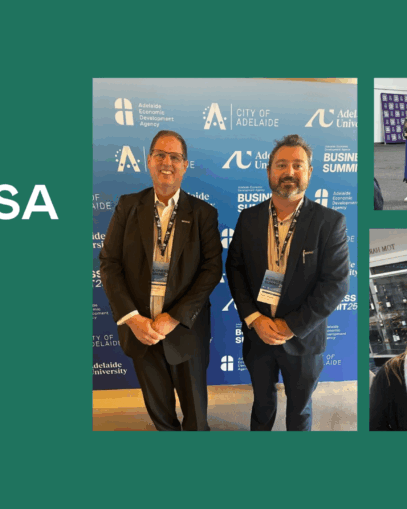Words matter – the power of leadership communication

Words – spoken, written or signed – are at the heart of relationships and how we communicate with each other. How we choose to express our thoughts, feelings and emotions demonstrate who we are as individuals and how we see the world around us.
While words can’t change reality, language can absolutely influence the perception of individual and shared reality. The meaning of words, whether intended or not, shape our beliefs, drive our behaviour, and ultimately help to create the world around us.
Considering what’s been playing out in the United States over the past months following the US election, we’ve had a front row seat in real life that demonstrates every day across multiple platforms just how potent words can be, especially when coming from a place of power.
Be accountable for your influence
Good leaders understand the effect their words can have, both in everyday encounters and in more formal environments when addressing their peers, teams, organizations and stakeholders.
Words carry weight, particularly from those in positions of influence; the power arises from our emotional responses when we hear, read, speak or even think words.
As new US President Joe Biden said in response to Trump and his now infamous Call to Action to his supporters, “At their best, words…can inspire. At their worst, they can incite.”
Some readers may recall the old school saying, ‘Sticks and stones may break my bones, but names (or words) will never hurt me’. The intent was no doubt to help encourage personal resilience; the unspoken message being that words don’t really matter, just ignore it all and carry on.
We now know this of course to be untrue, and contemporary thinking has evolved when it comes to understanding the impact and influence of language and how it plays a crucial role in creating, or busting myths, stereotypes and stigma.
Good communication starts at the top
We’re all speeding along in the fast lane, doing our best to juggle career, family, friends and more. It’s too easy to speak without thinking and I’m sure you can all remember a time when you wanted to take back some hastily spoken words the moment they were out there. I know I can, and as a communication professional I’ve been curating my own conversations in the privacy of my head for the last few decades – and I still say things I regret.
Being mindful of the privilege many of us have as leaders and managers, and our everyday impact on people through the words we wield, can help in choosing words with a little more care.
I’ll leave you with my top tips for building trust and commitment through better communication.
Speak the truth. Integrity, honesty, trust. All key attributes that form the glue in a team and inspire commitment through good leadership. You can never demand trust, it must be given, and it all starts with how we behave and what we say.
Empathy not ego. When you leave home each day for work, leave your ego at the door. Empathy and genuine care for your team will take you a great deal further than an over-inflated sense of entitlement. And when something goes wrong (and it invariably will), asking for and getting forgiveness and understanding from colleagues will be that much easier.
Be open to feedback. There’s a big gap between hearing and really listening. In a comfortable setting for both you and those you’re talking with, ask for some genuine feedback on your communication style and how people perceive you. Awareness of self and being open and willing to make changes in how you communicate is key.
Simple over complex. Unlock the power of communication by turning complex into simple. Take the time to understand your audience and learn what motivates and moves them. Leave out the jargon and acronyms and speak from the heart.
Margaret Cresswell is an expert in strategic communication, engagement, and human centred transformation. She is passionate about unlocking the power of communication and helping clients to connect with their stakeholders through authentic, shared stories. Margaret has consulted to and worked for government and the private sector both within Australia and internationally, lectured at the University of Canberra and is a past serving defence member.


